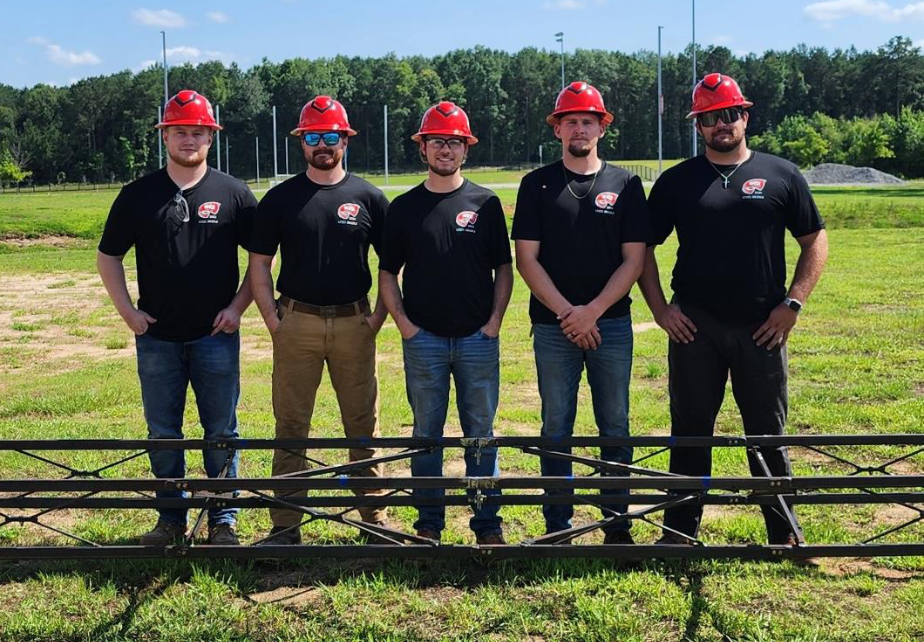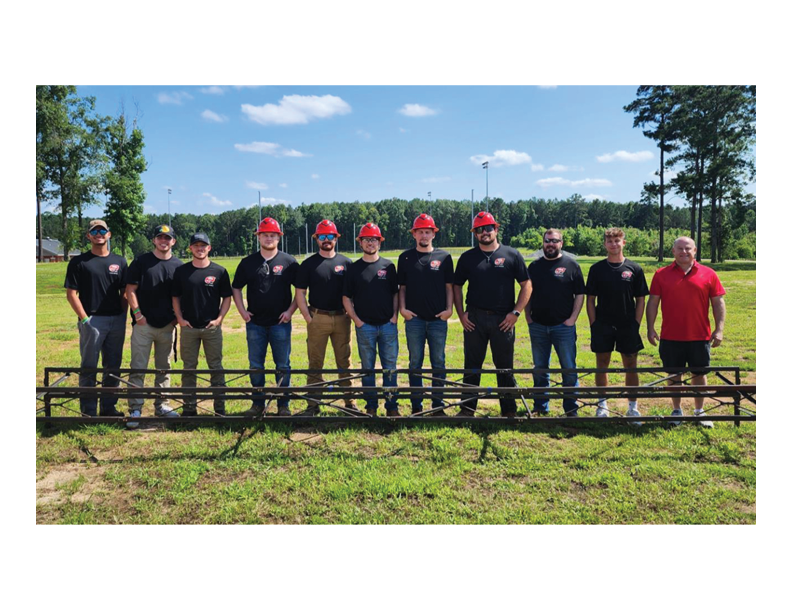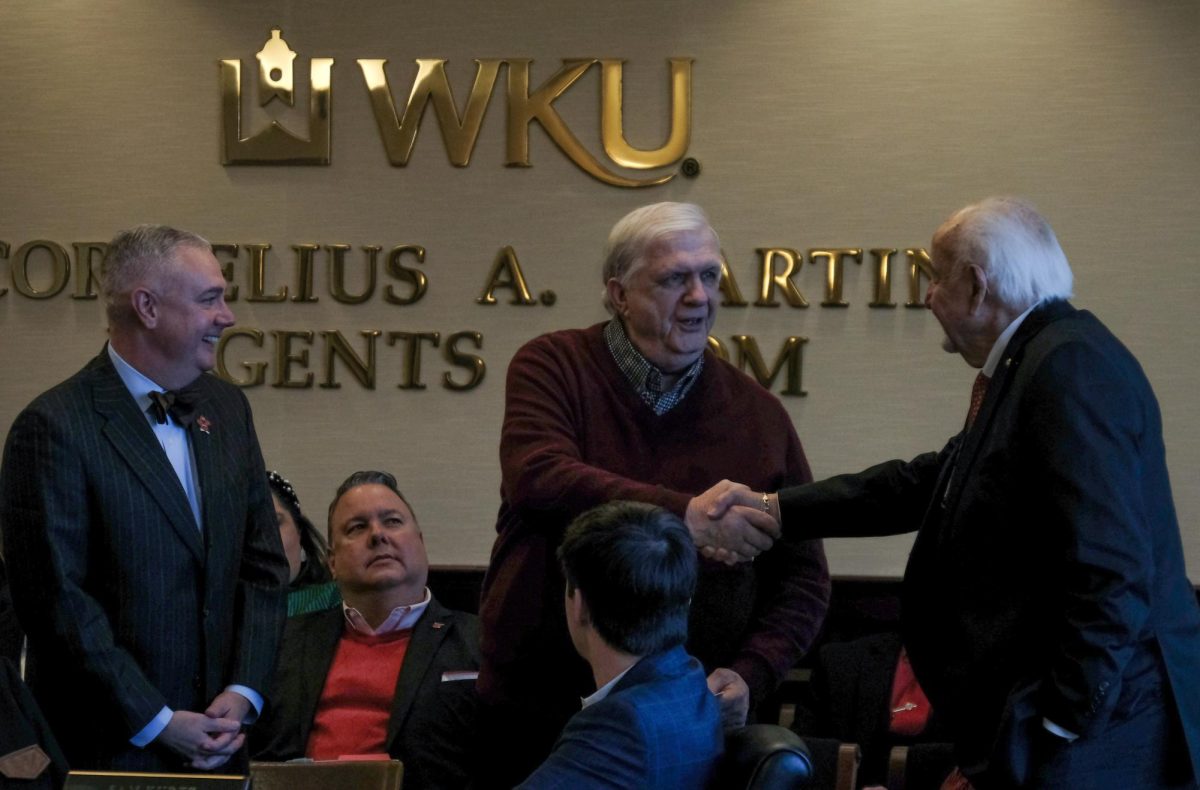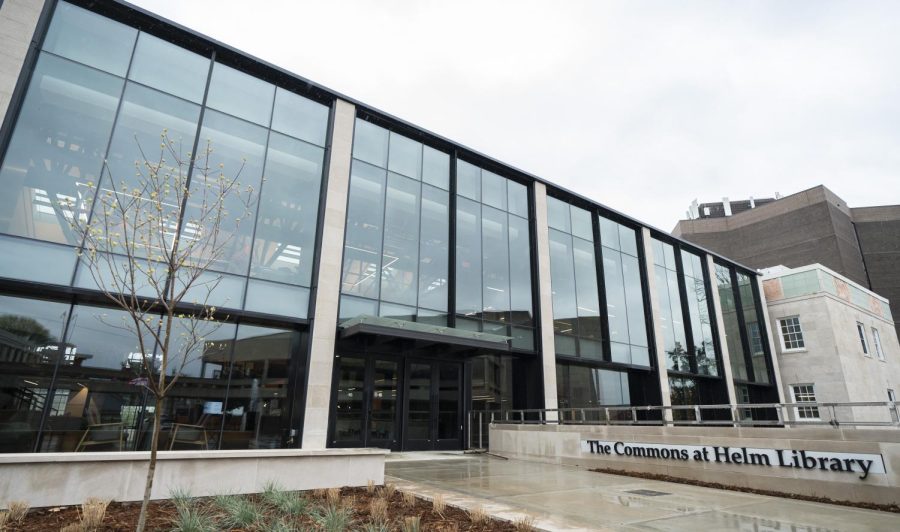WKU civil engineering students traveled to Louisiana for the 2024 National Student Steel Bridge Competition and finished 39th overall, a press release announced on June 1.
A total of 49 schools competed at nationals this year on May 31 and June 1, and each school presented a team of students that designed and constructed a steel bridge to be judged on a variety of criteria.
The 2024 WKU Steel Bridge Team members are:
- Nathan Cates, co-captain from Russellville
- Elijah Knight, co-captain from Calhoun
- Jack Barton of Beaver Dam
- Jared Brewster of Campbellsville
- Nate Bruner of London, Ky.
- Cameron Dunn of Mount Washington
- Justin Elms of Morgantown
- Dakota Harrison of Scottsville
- Bradley Herman of Bowling Green
- Cole Hollinsworth of White House, Tenn.
- Jeremy Jordan of Glasgow
- Logan Kauffman of Eddyville
- Luke “Ben” McElroy of Madisonville
- William Pemberton of Edmonton

The WKU Steel Bridge Team construction builders from left to right: William Pemberton, Nathan Cates, Dakota Harrison, Elijah Knight and Bradley Herman. Photo provided by Shane Palmquist.
According to the press release, WKU’s bridge was “a sleek beam structure that proved to be structurally strong with adequate stiffness and was quick to assemble with minimum bracing needed.”
For each criteria the bridges were judged on, WKU finished:
- 42nd for stiffness, the measure of the strength of the bridge
- 40th for structural economy, a measure of the construction cost of the bridge
- 35th for construction speed
- 17th for lightness
- 40th for structural efficiency, a measure of the total net cost of the bridge in which the lowest cost wins
The competition boils down to money, Shane Palmquist, a professor of civil engineering, told the Herald.
Each aspect of a bridge’s construction is equated to a dollar amount that determines the final judging of the bridge. The amount of components, the number of builders and the speed of construction are identified as a monetary value.
Teams race to construct their bridges. Once their bridge is completed and checked to meet all necessary criteria, 2500 pounds are placed onto the bridge to determine how well it deflects.
Deflection, when a portion of a structure moves because of applied force, plays into how stiff the bridge is, and that also equates to a dollar amount, Palmquist said.
According to Palmquist, the team completed construction of their bridge in about 17 minutes.
“If you drop a bolt, that’s a penalty; you have to pick it up immediately or it’s another penalty,” Palmquist said. “It’s pretty intricate.”
In early April, the WKU Steel Bridge Team traveled to Purdue University Northwest as part of the regional conference qualifiers. WKU competed against 11 other teams from engineering colleges and universities from Kentucky and Indiana, the press release said.
WKU finished 2nd place overall at regionals, which earned them a spot at the national competition at Louisiana Tech University in Ruston, Louisiana.
“The students definitely really worked hard this year,” Palmquist said.
COVID impacted WKU’s involvement in the competition for a couple years, so this year was a return to form for WKU, Palmquist said.
Palmquist encourages all freshmen majoring in civil engineering to get involved with WKU’s chapter of the American Society for Civil Engineers. WKU not only participates in the steel bridge competition but also in the concrete canoe competition.
“That student club is very active,” Palmquist said, “And if members want, they can help out with the steel bridge or the concrete canoe and participate as a team member.”
The WKU concrete canoe team will be competing in the Concrete Canoe National Championships starting on June 20 at Brigham Young University in Utah.
News reporter Cameron Shaw can be reached at [email protected].





